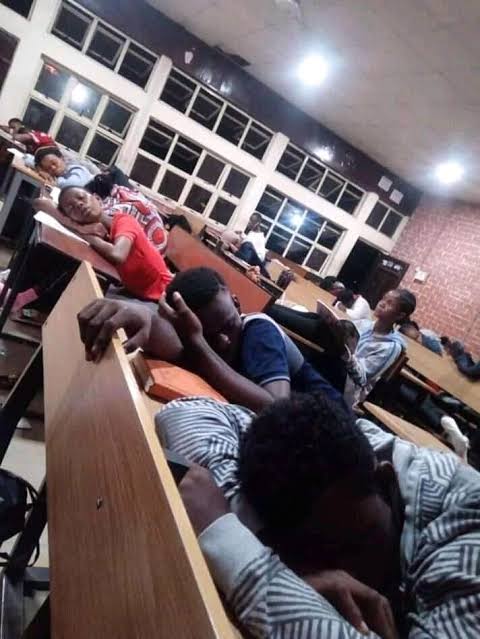TDB Phenomenon: A cause for concern on the safety and well-being of students in Nigerian universities, by Maimunat Mohammed
The TDB (Till Day Break) is a living legend among students in Nigerian universities as old as time itself. Everyone who has been through the four walls of a university is familiar with the acronyms TDB. It involves the practice of staying up late into the night on campus, especially weeks to commencement of examinations engrossed in personal or group reading and academic discussions.
While some students go for reading early in the evening to return around 9-10 pm, others leave their hostels and homes around 10 pm to school and return the next morning. This often shows dedication to study and gives students a feeling of being serious. However, there are lots more to TDB than just reading. Sometimes, it is game time for male students to hunt for young female students who study alone or in groups. Some male students, especially those in the senior level pose as tutors to new students and from there a relationship is established. The night classes become regular meeting points.
It is essential to acknowledge the potential risks and drawbacks associated with this trend. In light of the increasing insecurities on various Nigerian campuses and the detrimental effects of sleep deprivation, it is imperative to reconsider the wisdom of engaging in TDB activities. There is the need to prioritise safety and well-being over the tradition of late-night studying.
First and foremost, the growing security concerns in the country is a matter of concern, highly secured environments get invaded in broad daylight, what more of a university where security personnels are not armed. Incidents of violence, theft, and harassment have become alarmingly frequent, posing a significant threat to the safety of students. The practice of TDB, which involves being alone or in small groups during late hours, increases vulnerability to such risks. It is crucial for students, educational institutions, and relevant authorities to recognise the importance of implementing safety measures and protocols to mitigate these dangers.
Furthermore, engaging in TDB contributes to sleep deprivation, which is detrimental to the overall health and well-being of students. Sleep plays a vital role in cognitive function, memory consolidation, and emotional regulation. Prolonged sleep deprivation impairs concentration, hampers academic performance, and negatively affects mental and physical health. There have been notable incidents where students stay up the whole night reading only to fall asleep in the morning missing exams. Some even break down and need to be rushed to the hospital as a result of sleep deprivation. Some students even go as far as taking substances so as to stay awake all night. All of these have adverse effects on the health of the students. It is essential for students to establish a healthy study-life balance, which includes prioritising adequate sleep for optimal academic and personal outcomes.
Additionally, the environments where students often engage in TDB activities can expose them to harmful creatures and insects. Campuses are home to various wildlife and pests, some of which pose risks to human health. Encountering these creatures, especially in dimly lit areas during the late hours, increases the chances of potential harm or bites. There have been reports of snake attacks in schools across the country, most of these incidents usually occur at night. Students should be aware of these risks and take appropriate precautions to ensure their safety, such as studying in well-lit and secure areas during daytime hours.
It is crucial for universities and academic institutions to actively promote and foster a culture of safety, well-being, and balance among their student bodies. This includes raising awareness about the potential risks of TDB, implementing security measures, and providing safe spaces for studying during reasonable hours. Encouraging students to adopt healthier study habits and empowering them with knowledge on time management, effective study techniques, and the importance of restful sleep can contribute to their overall success and well-being.
Conclusively, while the TDB phenomenon showcases commendable dedication to academic pursuits, it is important to recognise the potential risks and drawbacks associated with it, particularly in the context of increasing insecurities on Nigerian campuses. Prioritising safety and well-being should be paramount, urging students to adopt healthier study habits and ensuring adequate restful sleep.
Universities and educational institutions must actively promote a culture of safety, while students should exercise caution and make informed decisions about their study routines. By reevaluating the TDB tradition, we can collectively work towards creating a more secure and conducive learning environment for all Nigerian students.
Maimunat Mohammed is the campus reporter of Neptune Prime and a post graduate student of Ahmadu Bello University Zaria. She can be reached via
gudukomemunat@gmail.com
09030544874.
Follow the Neptune Prime channel on WhatsApp: https://whatsapp.com/channel/0029Va74ZvU2v1IqKByXoX3d
Do you have breaking news, interview request, opinion, suggestion, or want your event covered? Email us at neptuneprime2233@gmail.com


